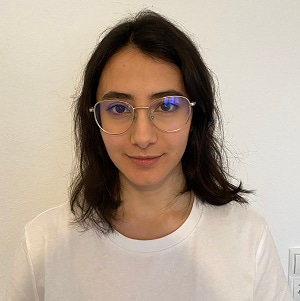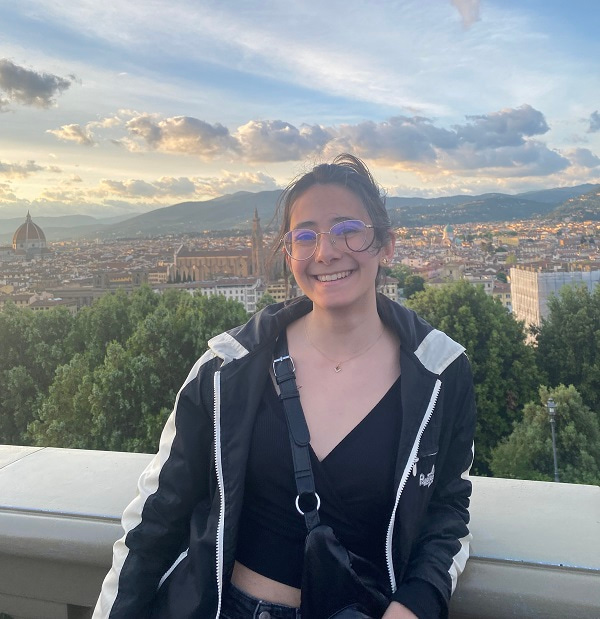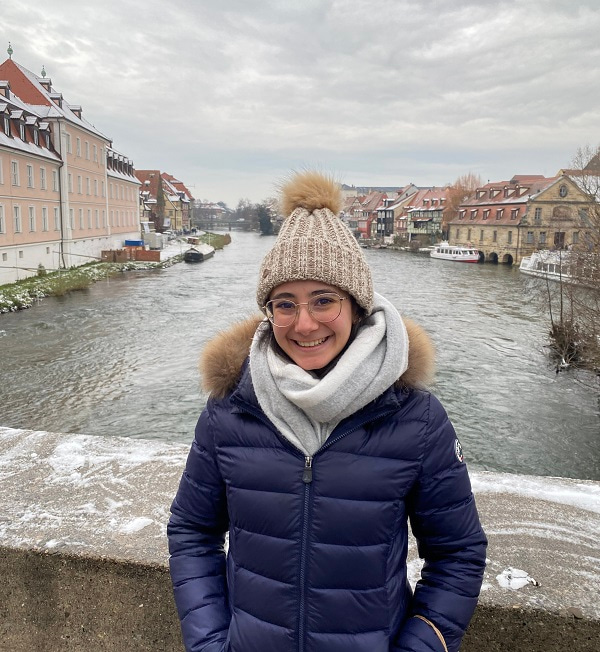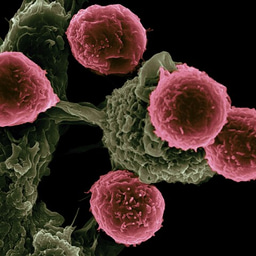Meet Sara Leon Alvarez: FEBS Junior Section members' interview series

Our interviewee today is Sara León Álvarez, Laboratory Assistant in Neurobiology (Reinhard Jahn) at the Max Planck Institute for Disciplinary Sciences, Göttingen, Germany. Sara is a member of the SEBBM Junior Section, the junior section of the Spanish Society for Biochemistry and Molecular Biology (SEBBM), a FEBS Constituent Society.

What motivated you to pursue a career in science? Why did you choose this field?
Ever since high school, I felt a strong ease and passion towards biology. It amazes me to be closer to understanding the complexity of life. So far, I haven't specialized myself in any field, so I chose neurobiology as any other field in which I have a great interest.
Briefly introduce your research topic. What is the purpose of your research?
I am working with purified synaptic vesicles from mice. Currently, we developed a device that allows us to record how synaptic vesicles, once immobilized on a surface, answer to different environments. With this method, we aim to understand better these organelles in their complex surroundings.
What excites you most about your work or research?
What excites me the most is the working environment where I am – in which there is a predominant sense of a positive push to make a better science, and support from other scientists, having a constant transference of knowledge.
Among all the scientific discoveries of all time, which is your favorite? Why?
The discovery of penicillin. It shows that even when we make mistakes, we can learn so much from them if we remain curious, to the point at which it can revolutionize society.
What do you do as a scientist to make your work interesting and accessible to the public?
I try to do some science dissemination, organizing generic talks for the rest of the population to be properly informed.
What do you like to do in your spare time? Do you have hobbies?
I love reading about psychology and doing mindfulness, taking walks in nature and learning about different cultures through events and history. As well as, for sure, travelling!

How did you learn about the FEBS Junior Section? What motivated you to become a member?
I learned about this opportunity from some colleagues who were involved in a similar scientific association as the one in which I was involved in (Biochemistry In Motion-Toledo). They established contact with our National Society (SEBBM), as we were keen on having a junior representation in our society. Through a wonderful conversation with Sara Linares, we were introduced to an initiative that went beyond the creation of the SEBBM Junior Section—namely, the FEBS Junior Section. What particularly motivated me was the chance to explore my abilities in an international setting. I have a passion for communicating in English, and the FEBS Junior Section offered an ideal environment for exploring and developing various skills like organizing online events.

What is the importance of getting involved in FEBS JS activities for students and young scientists?
Life/Science extends far beyond the predetermined path laid out by universities. Through FEBS Junior Section, one's horizons are expanded, offering insights into how science operates in other countries and revealing diverse opportunities. In essence, it opens doors in numerous directions, facilitating connections with like-minded individuals across the globe.
What advice would you give to aspiring students and scientists?
Embrace your curiosity and fearlessly pose the seemingly simplest questions that arise in your mind. By doing so, you can gain a deeper understanding and enjoyment of everything.
Where do you see your career going next?
Probably moving into the industry and trying the different job positions offered until I find what I enjoy the most.
Photo by Scott Webb on Unsplash





Join the FEBS Network today
Joining the FEBS Network’s molecular life sciences community enables you to access special content on the site, present your profile, 'follow' contributors, 'comment' on and 'like' content, post your own content, and set up a tailored email digest for updates.